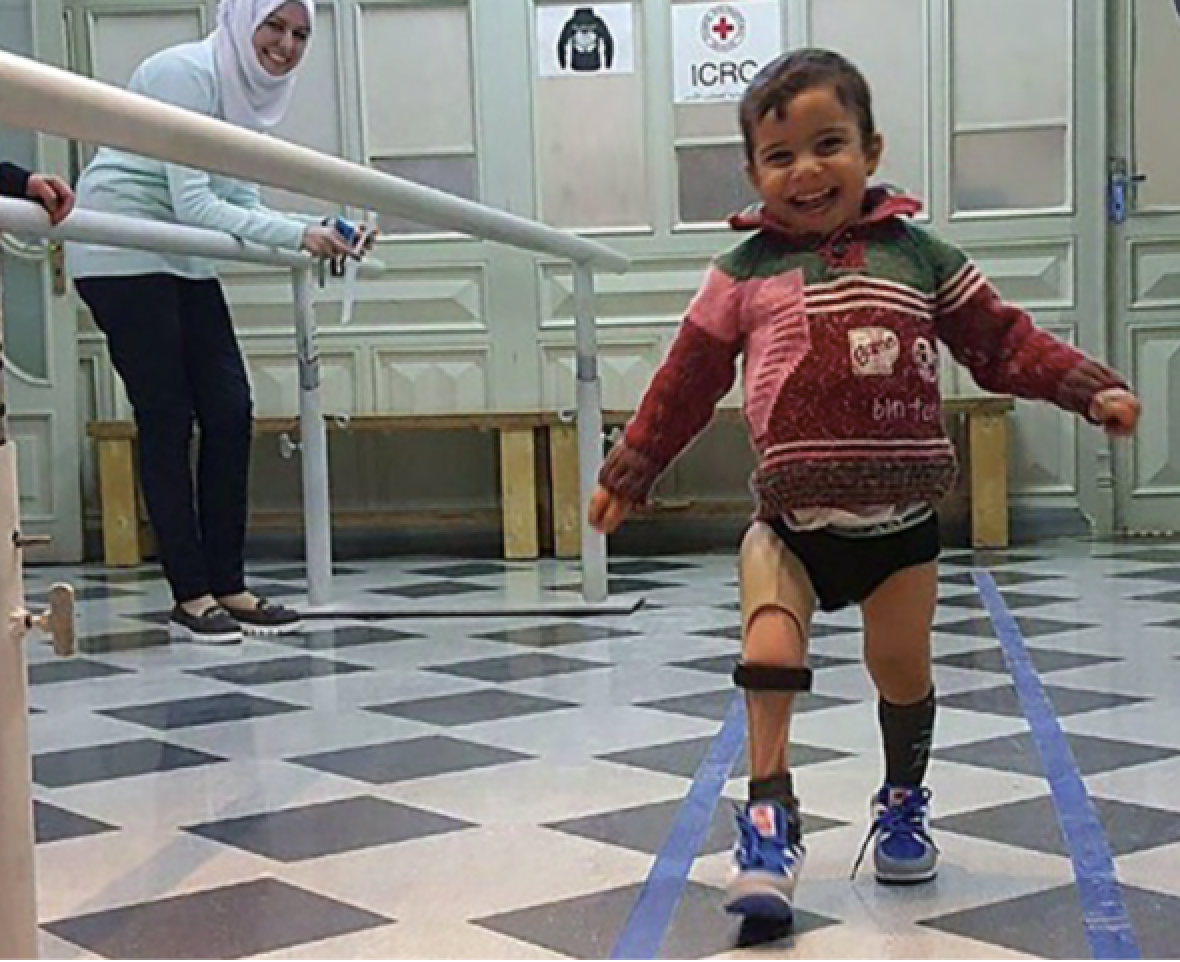Results and lessons learnt from the ICRC Humanitarian Impact Bond
Set my timezone
Select a timezone from the map or dropdown and click the Set timezone button to adjust the event date/times to your current timezone.

An in-depth discussion of the implementation and results of the pioneering impact bond, launched by the International Committee of the Red Cross in 2017
Engaging with Evidence is a series of interactive online convenings hosted by the Government Outcomes Lab (GO Lab) and designed to encourage a greater understanding of the latest evidence on the use of cross-sector partnerships focused on outcomes. The sessions are hosted monthly, and attract a diverse range of practitioners from different sectors, as well as researcher from across the world.
Building independent, high-quality evidence
At the GO Lab, we believe in the importance of building independent, high-quality evidence and disseminating it effectively to inform policy decisions and improve practice on the ground. As new evidence around the use of outcomes-based approaches is starting to emerge, we hope that with this series of online convenings we can continue to bridge the gap between evidence and practice, and help foster real dialogue between policymakers, practitioners and researchers in an honest, transparent and constructive way. Both veterans and explorers interested in better understanding the latest evidence around the use of outcomes-based approaches are welcome to join these sessions.
Throughout 2023, Engaging with Evidence will offer an open platform for policymakers, practitioners and researchers around the world to engage with key findings from the latest research and evaluation work in the field. They will have the opportunity to discuss new evidence directly with the authors of research and evaluation studies, hear the practical insights of the partners involved in the development and implementation of the projects under discussion, and reflect on the relevance of the evidence to their own work.
What to expect
Each session lasts 90 minutes and features contributions from a diverse panel of experts, as well as ample time for contributions and questions from all participants. Discussions at each session are grounded in the findings of a recent evaluation or research study, with additional practical insights brought in by stakeholders directly involved in the work or project under discussion. Each session follows a set format:
- Setting the context & presentation of the evaluation/ research findings
- Discussion with the panel and audience questions
- Closing remarks
If you’d like to suggest a topic or highlight a recent study that you’d like to see discussed on a future session, please contact our moderator Srinithya Nagarajan
Session Overview
In this session we explored the lessons learnt from the development and implementation of the International Red Cross Committee (ICRC) Humanitarian Impact Bond (HIB). We were joined for this session by experts from the International Committee of the Red Cross, Foreign, Commonwealth & Development Office, the International Institute for Management Development, and the University of Oxford.
Participants to the session had the opportunity to:
- learn more about the implementation of the HIB programme and the results achieved;
- hear from those involved in the programme as to their reflections on the impact, legacy, and lessons learnt from delivering the programme through an innovative funding model (impact bond), and
- explore with development and social finance experts how the experience of the ICRC HIB can help inform practice in the humanitarian sector more broadly.
The ICRC Humanitarian Impact Bond was launched in 2017 to help transform the way vital services for people with disabilities are financed in conflict-hit countries. This was a 5-year programme delivered by the International Committee of the Red Cross to build and operationalise three new physical rehabilitation centres in Nigeria, Democratic Republic of Congo and Mali. The initial funding was provided by social investors, such as Bank Lombard Odier and New Re, and ultimately reimbursed through a payment-by-result agreements by outcome funders, including the governments of Switzerland, Belgium, Italy, the United Kingdom and "La Caixa" Foundation.
Despite multiple setbacks including two political coup d’états and a national strike in Mali and an attack on the electricity supply in Maiduguri, Nigeria, by insurgents, as well as more routine challenges in operationalising the new centres, the HIB implementers have succeeded in opening all three centres. The final results of the programme showed that the centres are nearly 10% more efficient than the benchmark centre in terms of time management, staff members skills, management of stock and resources. These criteria and essential elements such as the quality of care and the satisfaction of the patients were the key factors that helped determine the level of success of the HIB.